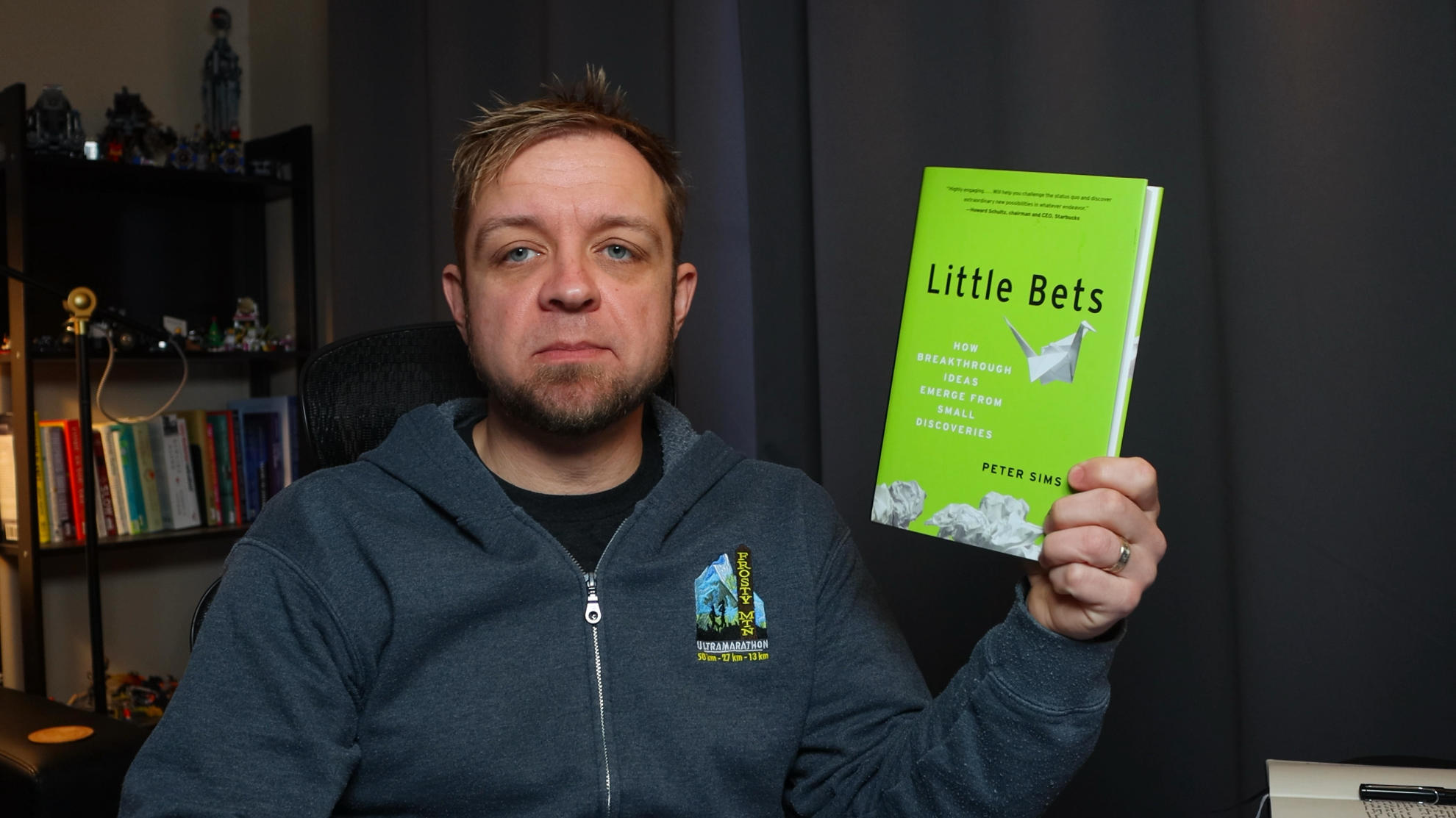I'm sure we all feel like we have a great idea inside us. Something that's waiting to come out given the right circumstances. In fact I believe this is true for most of us, but the risks we think we have to take to make this idea a reality make it seem like an impossible endeavour to get our idea off the ground.
If you feel like your in this position then Little Bets by Peter Sims is a book to take a look at. Sims goal is to help you learn to take little experimental bets, be willing to fail and learn from that failure to build towards something that's successful.
Purpose
Little Bets is based on the proposition that we can use a lot of little bets and certain creative methods to identify possibilities and build up great outcomes. 1
According to Sims there are 6 keys to the Little Bets approach in this book2.
- Experiment: learn by doing fail quickly and learn from the failure what didn’t work. Keep what did work and toss the rest
- Play: a playful improvisational atmosphere quiets our inhibitions so we don’t kill good ideas before they incubate
- Immerse: Head into the world to understand deeper human motivations and gather fresh ideas
- Define: Use your insights to define specific problems and needs, before you solve them.
- Reorient: Make use of small wins and pivot towards what is working instead of sticking with the original plan
- Iterate: repeat, refine and test frequently with the knowledge you’re gathering
The Problem with Big Bets
Sims says that the problem with big bets is that they focus us on what we're willing to loose3. This is like spending months building a course, only to have it fail because no one purchased it. The alternative is to do some shorter YouTube videos and see what people are attracted to. Then start to build out a short course around those few things that people like. If that short course gets traction, move on to something bigger. Just make sure you've tested your bigger idea first to see if it's going to get any traction.
I've totally launched 1 huge course with huge prices everyone was telling me to charge...to not a single purchase at all.
In the midst of these little bets, you're going to have failures4. You'll need to try many things to learn what works for you and what doesn't. You'll need to figure out what level of effort is sustainable for you and what you can't make happen.
As Sims talks about this, he also encourages readers to have a growth mindset5. With a growth mindset, failures aren't a knock to your self-worth. You note what worked and the effort you put in and then move on to the next thing armed with new knowledge knowing you're making a step towards finding that thing that will work for you.
Experimenting Through Failure
The point to all this experimentation is to find the best solution to a problem. In product terms, most people can only figure out the most obvious options not the ones that they truly need6.
In the midst of all these trials I find Seth Godin's questions from The Dip to be helpful.
First, ask yourself if you're panicking. Is it really as bad as you think. Don't just quit in the moment something goes bad, establish why you may quit before you start and then hang on until that point comes.
Second, ask who are you trying to influence? Most people in the market have never even heard of your idea so haven't had a chance to reject it. Look at ways to talk to more segments of your market.
Third, what sort of measurable progress are you making? I think that this is the crucial question that intersects with Little Bets. As you fail, which failures were pointed in the proper direction and can be learned from. Keep heading down those paths7.
I've written about The Dip twice. Recently I looked at how The Dip lined up with Range and a few years back I reviewed The Dip.
Should You Read Little Bets by Peter Sims?
While Little Bets is a decently written book, I think that there are other better books to read that will give you the information contained here. First, The Dip is a short read about dealing with failure (the dip according to Godin). Second, Range is a great book about diversity of career options and continuing to work through career changes to build up your range of experience. Finally, Mindset is the canonical resource on embracing growth mindset.
If reading three books isn't up your alley, then Little Bets does provide much of this information in a single volume. Because it combines these things it's by necessity a shallower look at the topics, but that doesn't make it bad.
